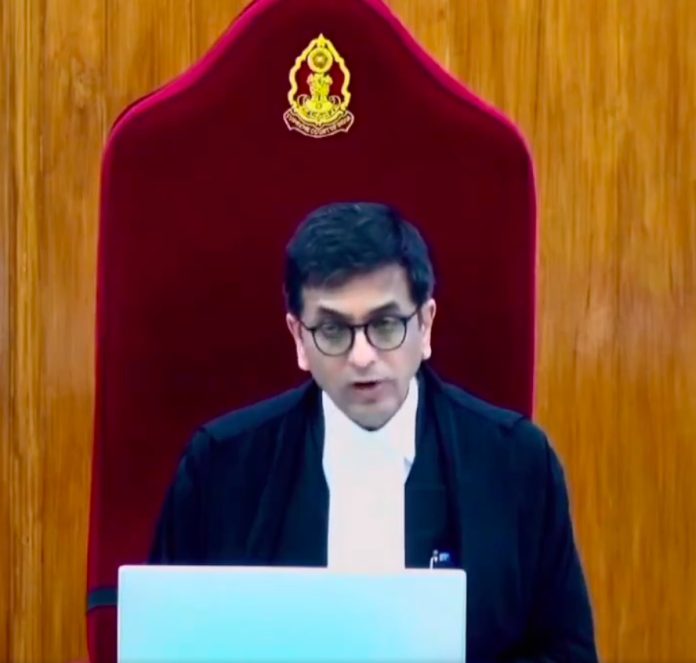In a landmark ruling, the Supreme Court of India delivered a comprehensive judgment upholding the validity of the constitutional order abrogating Article 370, a contentious issue for Jammu and Kashmir. A Constitution bench comprising five judges, led by Chief Justice of India (CJI) DY Chandrachud, had concluded hearings on 23 petitions on September 5 this year, after a 16-day session, and reserved its verdict for judgment. Chief Justice DY Chandrachud, accompanied by Justices Suryakant and BR Gavai, formed a unified opinion, while Justices Sanjay Kishan Kaul and Sanjeev Khanna penned separate concurring opinions.
The pivotal questions addressed by the apex court regarding the validity of abrogation of Article 370 spanned the nature of Article 370’s temporariness, the validity of Parliament’s 2019 amendment redefining the meaning of “Constituent Assembly of Jammu and Kashmir,” the extension of the entire Indian Constitution to Jammu and Kashmir via Article 370, and the legality of various actions taken by the Centre without the recommendation of the J&K constituent assembly.
Excerpts of the historic judgement over Article 370
Chief Justice Chandrachud underscored that Jammu and Kashmir, post-accession to India, relinquished its internal sovereignty. Emphasizing the validity of actions by the President and Parliament following the proclamation of President’s rule under Article 356, the Chief Justice clarified that these actions were not prima facie mala fide or an extraneous exercise of power.
Furthermore, the judgment reiterated that J&K did not possess a distinct or unique relationship with the Indian Constitution. It emphasized that J&K’s integration with India was evident in both the J&K Constitution and the Indian Constitution, affirming its status as an integral part of India.
Regarding Article 370, Chief Justice Chandrachud reaffirmed its temporary nature, citing its historical context as a transitional provision designed until the formation of the J&K Constituent Assembly and to address the state’s war-like situation at the time.
Addressing the reorganization of Jammu and Kashmir into two Union Territories—Jammu and Kashmir, and Ladakh—the Court refrained from determining the validity of this move due to the Centre’s assertion that the Union Territory status is temporary. Notably, the judgment directed the expeditious restoration of statehood to J&K and mandated the Election Commission of India to conduct elections for the Legislative Assembly of J&K by September 30, 2024.
Issue of Human rights
Justice Sanjay Kishan Kaul opined that his conclusions are in tandem with what CJI concluded. He said that while the purpose of the J&K Constitution was to ensure day-to-day governance, the purpose of Article 370 was to integrate J&K into India. Mentioning his ‘sentimental’ epilogue at the end of his opinion, Justice Kaul said, ‘The valley of Kashmir carries a historical burden and “We the people of Jammu and Kashmir are at the heart of the debate.” He went on to say, “Armies are meant to fight battles against enemies… not to control law and order in the state. The entry of the army created its own ground realities in the state… men women and children have paid a heavy price.”
He proposed the establishment of a Truth and Reconciliation Commission to investigate alleged human rights violations in J&K, emphasizing dialogue and justice delivery without adopting a criminal court approach. Justice Khanna in his remarks said that Article 370 was an example of asymmetric federalism and not indicative of the sovereignty of J&K. He proclaimed that the abrogation of Article 370 does not erode federalism.

